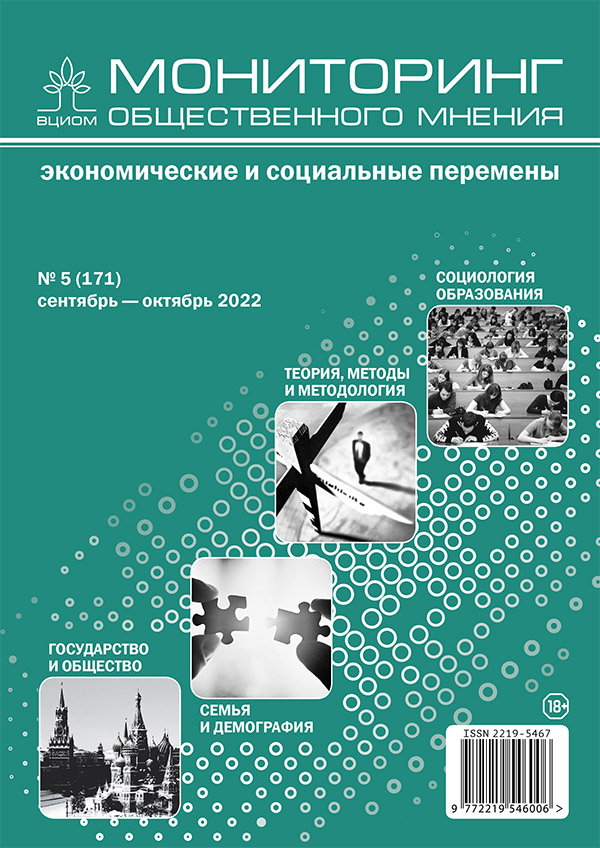Private Affordances and Imagined Audience as Factors of Students’ Virtual Self-Presentation
DOI:
https://doi.org/10.14515/monitoring.2022.5.1823Keywords:
virtual self-presentation, imagined audience, affordance, student, context collapse, social networksAbstract
The article presents the results of a study of Russian students’ virtual self-presentation in three social networks in 2020─2021. It focuses on private affordances and imagined audience as factors determining the specifics of self-presentation in context collapse, i. e. the presence of several social groups in one user audience. The study’s primary goal is to trace how virtual self-presentation is managed in context collapse and the role of private affordances and an imagined audience in this process.
The research method is an in-depth semi-formalized interview with students at Immanuel Kant Baltic Federal University (N = 19), supplemented by a demonstration of their profile in each virtual platform. The analysis of the interview was carried out in the Atlas.ti program. This made it possible to identify the fact and strength of the connection between types of audiences, affordances, and social networks. Computer text processing contributed to a more meaningful data analysis.
The main results of the study are: 1) context collapse takes place in social networks used by Russian students; 2) the determining factor of virtual self-presentation is an imagined audience - those social groups that users think about when they post something; 3) private affordances are a tool for maintaining self-presentation, but not its cause; 4) the platform specifics of virtual self-presentation consists not only in the different structure of the audience but also in the motives for using social networks; 5) the construction of a virtual self-presentation takes place with the expectation of both the strictest (lowest common denominator effect) and the strongest audience (strongest audience effect).
Acknowledgments. The work was carried out as part of the study “Private in Public: Cultural Features of Students’ Self-Presentation Management in Social Media (on the Example of Russia and the USA)” with the support of the grant of the President of Russian Federation No. МК-1909.2019.6 at the Immanuel Kant Baltic Federal University.
Downloads
Published
How to Cite
Issue
Section
License
Copyright (c) 2022 Monitoring of Public Opinion: Economic and Social Changes Journal (Public Opinion Monitoring) ISSN 2219-5467

This work is licensed under a Creative Commons Attribution-NonCommercial-ShareAlike 4.0 International License.






